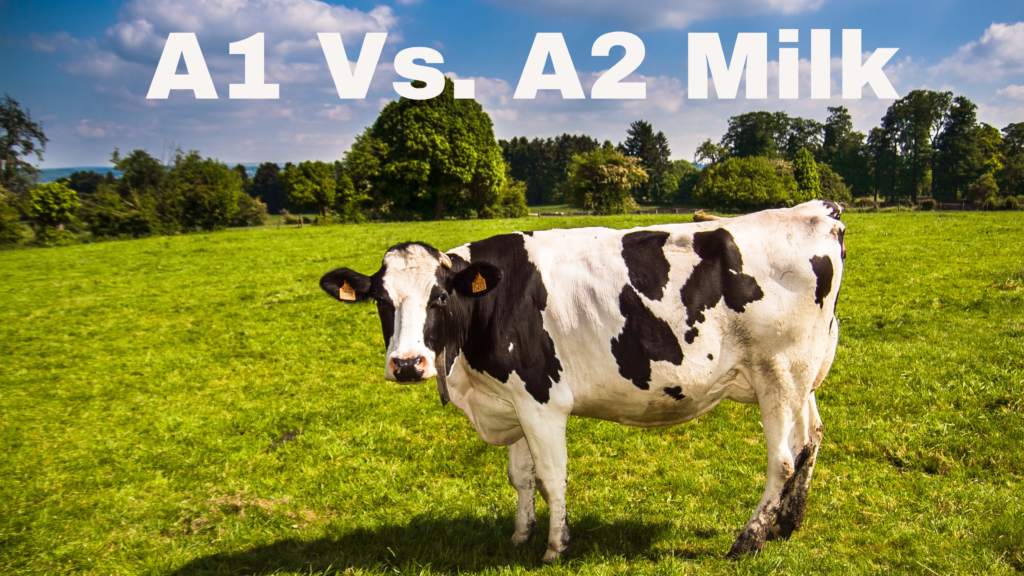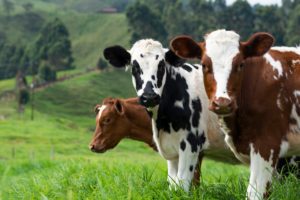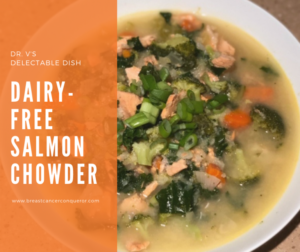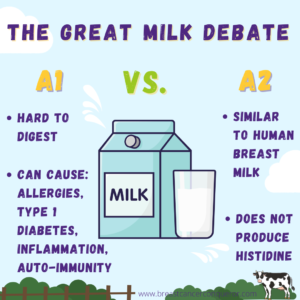
The great milk debate! Amazingly, we can go to most grocery stores and find milk from almonds, sweet peas, sunflower seeds, coconuts, flax seeds, cashews, goats, hemp, sheep, and yes, even cows! I wonder if kids even associate milk with cows these days!?
Before we get into the A1 or A2 milk debate, I want to share that I am not a fan of conventional dairy products because of all the hormones, antibiotics, viruses, and environmental pollutants. If you do choose to consume dairy, make sure you are not lactose intolerant and that you consume only grass fed, pasture raised, organic and preferably raw dairy products. There are many alternatives such as goat milk and nut milks. I list out several realistic alternatives in my book, Heal Breast Cancer Naturally. The marketing team behind cow’s milk has done an incredible job ingraining how healthy milk is for babies, kids, and adults. However, the truth is homogenized and pasteurized conventional store-bought dairy products are very toxic. You will learn more about milk and cancer further down in this article.
Milk is still milk. But if you want to include some in your diet, I suggest consuming raw milk and cheese. Raw means the product has not been cooked (pasteurized) and mechanically broken down (homogenized). Another exception to my dairy rule is to consume organic, cultured plain yogurt or kefir. These product are loaded with beneficial bacteria and may be associated with anti-cancer benefits. You can also find yogurt and kefir made from coconut or goat milk. Both products contain billions of probiotics that lead to building a better immune system and healing your cancer.
Now, let’s get to the big A1 or A2 Milk Debate!
A1 Vs. A2 Milk
Did you even know that there were different types of cow milk besides non-fat, low-fat, and whole? Here is the backstory: Not all cows make the same beta-casein protein, and this makes an utterly big difference! A1 milk does not break down well in the human body and can cause allergies, discomfort, and other serious health issues. In comparison, A2 milk contains digestible proteins that are similar to human breast milk.
A2 milk is natural to the body and easily absorbed. When cows were first domesticated over 10,000 years ago, all cows were A2/A2 cows. Over time, a mutated A1 gene found its way into the American dairy industry. Now, most cows are a combo of A1 and A2 (specifically, they are A1/A1 and A1/A2).
The A1 and A2 cow difference

- A2 cows produce a proline amino acid at position 67.
- A1 cows produce a histidine amino acid at position 67.
A1 and A2 Milk Science 101
I am going to get into some technical cow talk, but stay with me! From position 67 (in both A1 and A2) a side chain branches off called BCM 7, a peptide. If it breaks away from the amino acid chain and gets in the milk, it can cause adverse reactions. Some are linked to provoking Type 1 diabetes, auto-immune and heart disease, autism, and schizophrenia. In many people, it can also cause inflammation which can link to a wide range of health issues.
In A1 cows, the histidine amino acid easily lets go of the BCM 7. It gets in the milk, is gulped down, and then can cause health issues in certain people. However, A2 cows hold on tight to the BCM 7 peptide and it stays put!
Goats and other animals produce A2 milk and do not contain BCM 7. This could be part of why some people can enjoy goat and sheep milk even if they have allergic reactions to cow’s milk.
A2 Milk Brands
There are a few companies that only produce A2 milk. These include:
- a2 Milk Company. They produce Half and Half, 2%, whole, and chocolate milk and can be found in many grocery stores across the country.
- Alexandre Family Farm. This 6th generation family farm produces only free-range, grass-fed, and organic whole milk, vanilla and chocolate milk, eggs, and yogurt. They are also the first certified regenerative dairy in America.
- Kimberly’s Best is a full creamery that produces items such as goat cheese and milk and A2 milk.Do a quick Duck Duck search to find one near you.
A1 and A2 Milk and Cancer
Up to 90% of non-organic American commercial cows are full of bovine growth hormones (BGH) because it increases their milk production. The more milk a cow provides, the more money a company can make on each cow. This hormone is dangerous enough for the UK and Europe to ban injecting the hormone in all animals. In humans, bGH increases the level of an insulin growth factor known as IGF-1. This increases the risk for breast cancer since IGF-1 is a critical factor in stimulating tumor cells.
A recent study conducted by the Loma Linda University found that “By drinking up to one cup {of milk} per day, the associated risk went up to 50%, and for those drinking two to three cups per day, the risk increased further to 70% to 80%.” The study of 52,795 women found that women who consumed the most calories from dairy per day had a 22% increased risk for breast cancer.
Women who drank the most cow’s milk per day had a 50% increased risk of breast cancer.
Also interesting to note that drinking full or reduced-fat cow’s milk did not change the findings.
Dairy-free Recipes
 Dropping dairy doesn’t have to be scary! It can even make your life more delicious feel even better. Warm-up with some of my wintertime favorites:
Dropping dairy doesn’t have to be scary! It can even make your life more delicious feel even better. Warm-up with some of my wintertime favorites:
- Salmon Chowder is loaded with cancer-fighting phytonutrients, anti-inflammatories, antioxidants, protein, fiber, and, best of all, delicious flavors!
- Quiche with Almond Flour Crust is something you will crave for dinner, lunch, and breakfast! It is also a great way to veggies to your diet.
- Blueberry Cheesecake! Yes, you read that correctly! I love a good Cheesecake but not the dairy that comes with it. So I am excited to share this delectable gluten-free, egg-free, dairy-free, and sugar-free alternative. Spoiler-alert – creamy cashews are the secret behind this yummy slice of heaven!
- Find more delicious and cancer-fighting recipes here.
Conclusion
While I will always advise opting out of dairy or rarely consuming it, I understand that everyone’s lifestyle and options are different. If you do consume dairy, I suggest buying organic, grass-fed, and A2 whenever possible. Don’t just blindly buy a product by what is colorful and flashy on the front of the packaging. Be an investigator and read the labels to truly understand what you are purchasing.


Thank you for the very informative article on milk. I have been wondering about A1 milk vs A2 milk.
I had no idea about A1 and A2 milk. Even though I consider myself pretty well-informed, I somehow missed this. While I don’t drink milk, my son drinks lists of it. Thank you for the useful information.
You’re welcome!!
Hello everyone, what the dairy industry does not tell you is what milk, actually any mammal milk, is composed of. It is composed of hormones namely, Pituitary- PRL,GH,ACTH, Onytocin, Steroid- Estradol, Estriol, Progesterone, Testosterone, 17-Ketosteroids, Corticosterone, Hypothalamic- TRH, LHRH, Somatostatin, PRL-releasing factor, GRH, GnRH, Thyroid and Parathyroid hormones T3,T4,rT3 Calsitonin, Parathomone, PTH peptide, Gastrointestinal peptides, Vasoactive intestinal peptide, Bombesin, Gastrin Cholecystokinin, Gastrin inhibitory peptide, Pancreatic peptide, Y peptide, Substance P, and Neurotensin plus Growth factors too long to list and more. Cow’s milk has 300 % more hormones than human breast milk. Milk is specie specific. No mamal needs milk after they are weaned and no animal drinks milk after it’s weaned except humans. Hormones are messengers that tell your cells to grow and divide. Drinking milk constantly bathes your tissues in a fluid of elevated hormones. What is unchecked cell growth called???? Cancer!! Goats and Sheep milk is safer, they obviously are smaller animals. A-1 or A-2 cows milk does not change the hormone percentages. Cheese is concentrated milk, Butter is safe, is does not have the protein in it, yogurt is different too, it’s
fermented,don’t know why. No one really needs milk after the age of two. Explore this topic yourself and use dairy wisely. Thank you, J. B.
Hi! Thanks for this information. Although I am working on getting all dairy out of my household, I just wanted to clarify, you said butter is safe. Is cheese safe? All cheese? And did you say yogurt is safe? Any particular yogurt or is all safe? Thank you!
Hi Rose! Wow…. I’m guessing that you like dairy?! So, Dr V doesn’t ENCOURAGE people to eat dairy, however, if you are interested in dairy, she does encourage you to choose raw, organic, free- range, grass fed/grass finished, non-pasteurized dairy. Raw, organic cheese can be found, but I find it more difficult to find proper yogurt. Consider looking into making your own!